Wake up, Unite and Move
Nakata Ryo, leader of funk band Osaka Monaurail, talks about the potential of protest songs and the role of musicians in relation to the war.
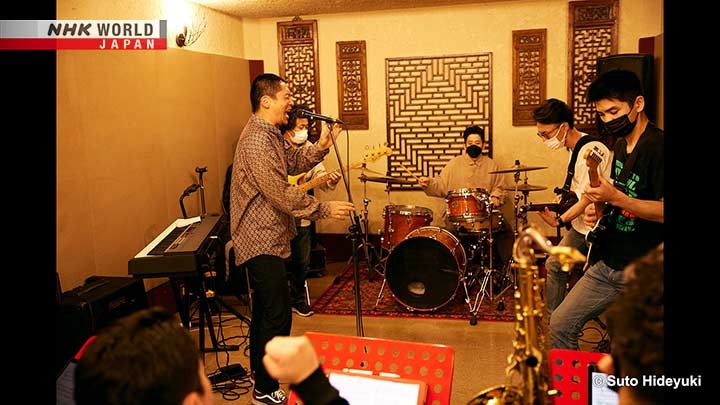
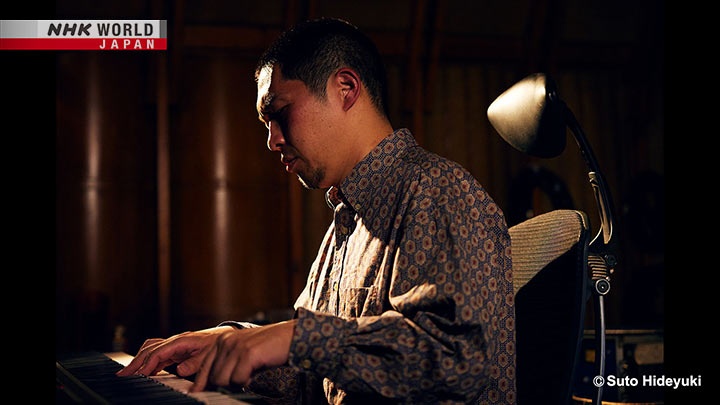
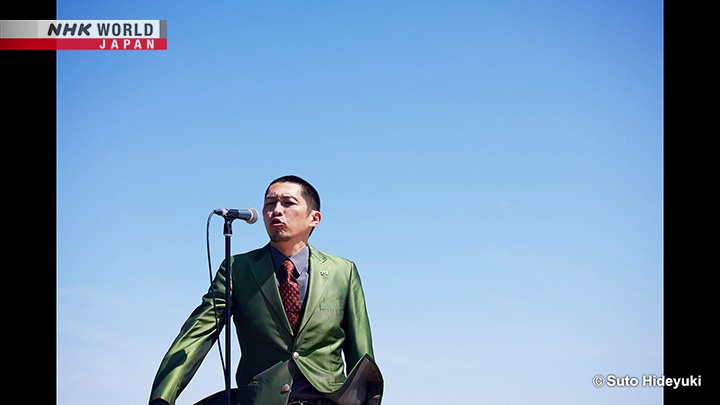
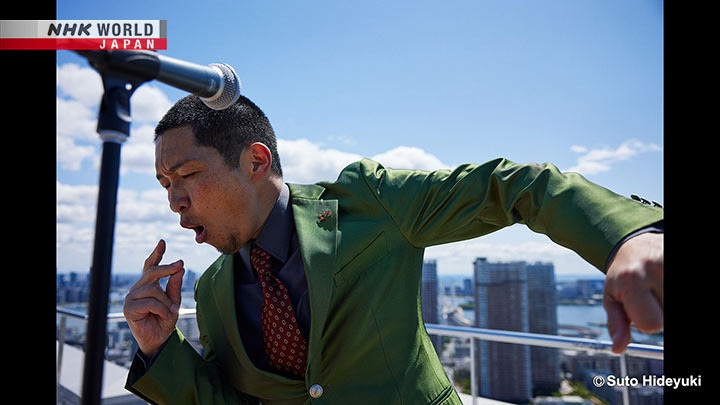
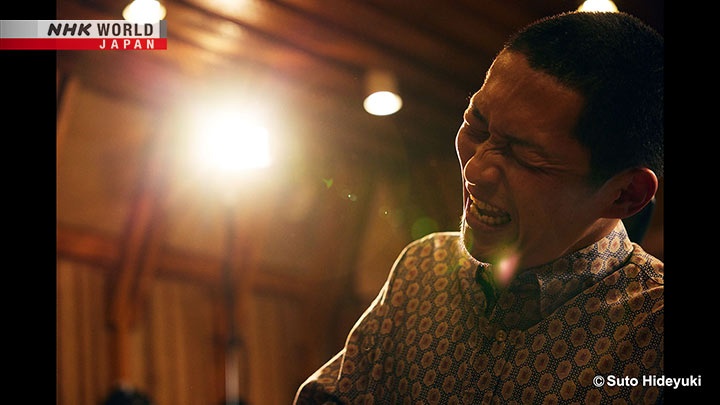
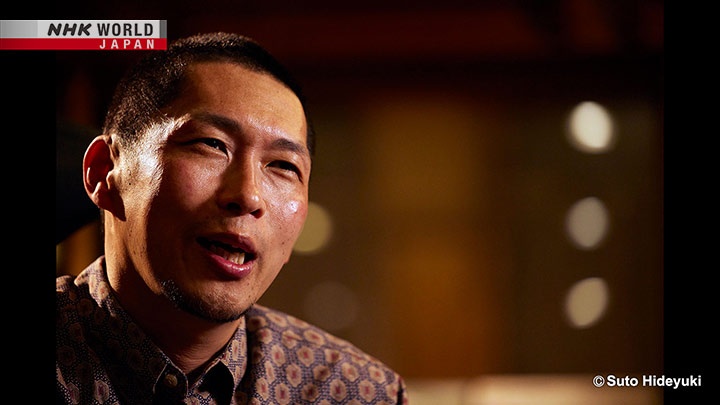
Transcript
I was fifteen, and it was
an unforgettable summer.
That's when I first heard
Ray Charles on the radio.
The way he sang "hey,"
"whoa," it was electrifying.
I thought "man, that's my jam!"
"Australia Tour
May 16–24, 2022"
That was our fifth or
sixth time visiting Australia.
Osaka Monaurail, a funk orchestra formed in Japan in 1992.
Highly regarded overseas, especially in the London funk scene.
The band has released 8 albums.
At every show, we said a few words
about peace, ending the war,
stopping Putin, and
the lives of the Ukrainians.
That was part of our message.
After Sir Waldo Weathers' session,
some guy from the audience
came up to us and said,
"Go, freedom fighters!"
It was so encouraging,
and even Weathers was moved.
"February 24, 2022
Russian invasion of Ukraine"
"What Japanese artists think"
Terrifying.
It's just terrifying.
The antiwar voices could be
louder compared to the Vietnam War,
but they aren't.
It's easier to protest now,
there are more tools
for expressing opinions.
But those platforms don't
actually unite people.
They don't seem to be
working in that way.
We are all victims of fake news
and information warfare, though
I think
we're confused
not by malicious content,
but the oversupply of information.
The problem seems to be that
we don't really have serious discussions.
We say all these things online,
but it's more important that we
talk with the people around us,
at the level of community,
prefecture, nation,
and then government policy.
That's the most crucial thing.
This song is called
State of the World.
It's about globalization,
social inequality,
the unbridled growth of big business
and war, you know,
all the signs that lead to dystopia.
The song isn't about solutions,
just the problems.
Putin isn't the only dictator,
not now, or historically,
which is incredible, right?
It doesn't matter what
their motives are, be it
money,
power, or just
keeping their position.
But millions of people die
because of arbitrary actions.
It's nothing new,
but why does it keep happening?
It's an inexplicable pattern,
and now we're seeing it again.
In 1967 and '68, the genre of
African-American music called soul
changed significantly.
Martin Luther King Jr.
was assassinated in 1968,
a year after he publicly
opposed the Vietnam War.
Back then, soul music was mainly
love songs and pop arrangements
of gospel music.
But those styles weren't enough
to express people's anxiety,
their distrust of authority,
and impatience at
the drawn-out war.
Soul music had to find a style
that spoke for the people.
And so funk music was born
in the late 1960s.
The difference was, simply put,
a departure from love songs.
It focused on rhythm, and the words
were like speech. No nice melodies,
no chord progression even,
just a kind of constant flow.
Protest songs reflect
the world's situation,
and there are
common messages.
We say "wake up."
"WAKE UP"
Each of us has to wake up and
act, together.
No one would act
on your behalf, right?
You must wake up and
do something for yourself
and other people.
Then we say "move,"
"MOVE"
meaning that each of us
has to make an effort
to move forward, together.
"UNITY"
Then we say "unity" or "unite."
It's a key concept in the
protest songs that grew out
of the late 60s
and early 70s.
There's real strength in numbers.
I expected people
to come together against
this war, but no.
Many say that America is
behind things, so it's
pointless to speak up.
Others say that Putin
isn't the only bad guy,
that Zelenskyy is also wrong.
We're a lot less united
than I thought we'd be.
That's a huge problem.
In soul music,
they usually don't mention
concrete matters.
Artists like John Lennon, too,
they kept singing about love,
peace and equality,
but that didn't end the wars.
So I used to think
that abstract messages had
no power to stop a war.
Chanting "love" and "peace"
may not stop wars right away,
but now I believe that they
haven't been said enough.
The messages must be passed
from generation to generation,
and it's my duty to do so.
"What Unites Us"
Before this invasion,
we hadn't thought much
about what peace meant.
I think we weren't prepared
to react to the outbreak of war.
It's a question of mindset.
People think Ukraine is so far
and somehow unrelated to us.
But we're a part of them,
of the conflict.
We ought to take an
active role in it.
We are all...
a part of it.
That's what I want to
express through my songs.